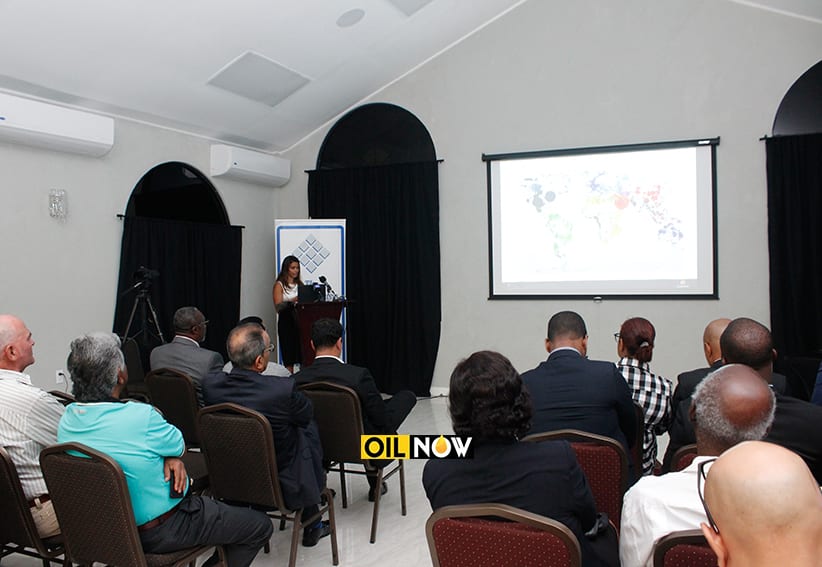Guyana is a frontier country in terms of oil and gas and as such the fiscal regime offered to international exploration companies needed to be attractive as the area was yet to be derisked. In light of this, Guyana secured an agreement with US oil giant ExxonMobil and its joint venture partners Hess and CNOOC Nexen, which was “quite fair.” This is the view of Sonya Boodoo, Senior Analyst at Rystad Energy, who gave a presentation on Tuesday evening at The Symposium, Duke Lodge under the auspices of the Private Sector Commission of Guyana.
The presentation was centred on Guyana’s share of revenue from the Stabroek Block’s development and how this relates to countries around the world.
“What we have done is compare the Guyana Government’s take with other offshore regions and we find Government take here as the Net Present Value of the Government receipts divided by the Net Present Value of the profits of the entire field and what we have seen is that average for offshore is around 80 percent and Guyana comes in at around 59 percent,” said Boodoo, during her presentation.
She said that while “in the grand scheme of things” this might appear to be a low number it must be taken into consideration that Guyana is a frontier region and when compared to other offshore regions that are in a similar state of maturity, Guyana falls in the middle. Here she cited Mauritania, Mozambique and Israel as examples.
“…Within this frontier region bucket, we see the average government take being between 45 and 70 percent and Guyana falling at 59 percent is quite average in that respect. So we think the regime here is quite fair and average,” said Boodoo.
She said that the reason why frontier nations need to have more attractive fiscal regimes is because “We need to incentivize people to come and invest in a region that is quite high risk. One way to do that is by Government offering very favourable fiscal terms and I think that it has been successful in attracting ExxonMobil and its partners into the region and discovering all of these resources,” she said.




Quite true we not only need investors but we also need to invite people to migrate to Guyana, or to put it plainly. If we were to look at the amount of Guyanese who have departed through migration or death at an early age.